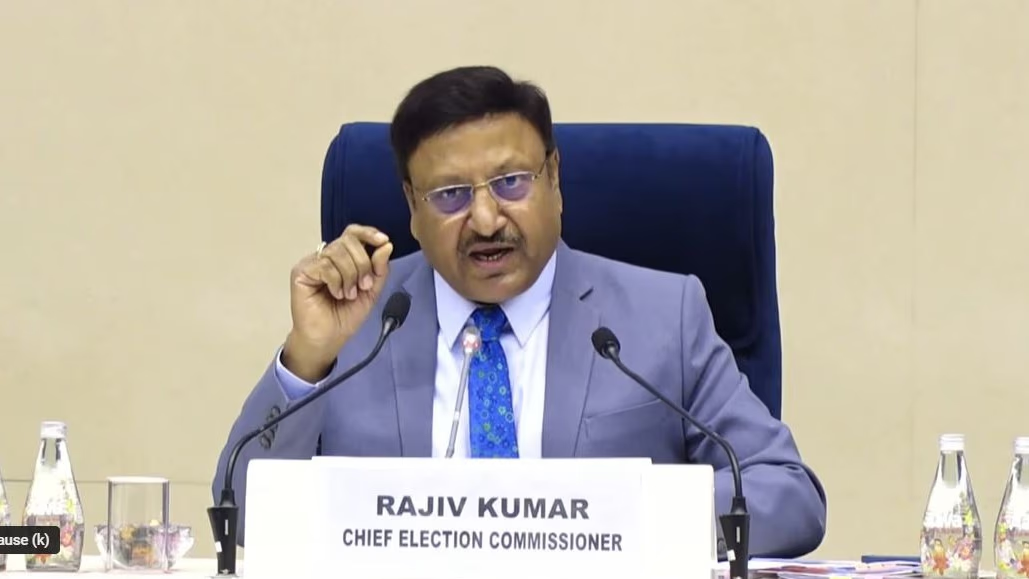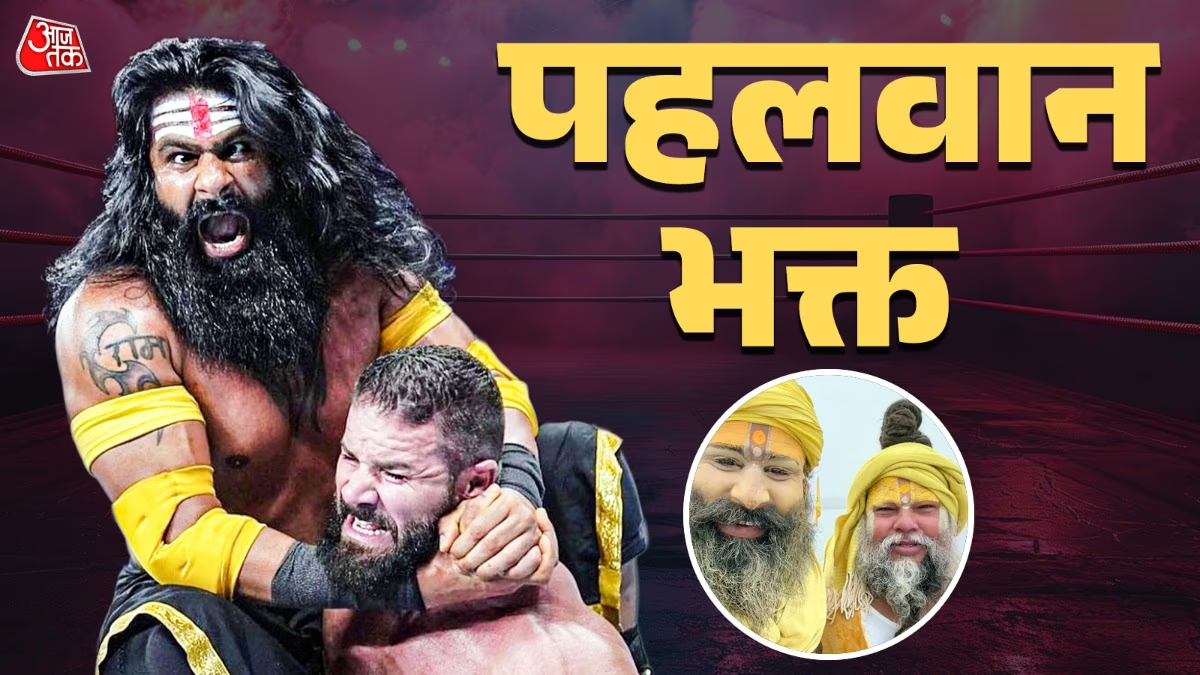The dates for the Delhi Assembly elections have been announced. Chief Election Commissioner Rajiv Kumar stated that voting in Delhi will take place on February 5, and results will be declared on February 8. Additionally, by-election dates for UP's Milkipur assembly have also been released, mirroring Delhi's timeline. During the press conference, every question about election processes, EVMs, voter lists, and turnout raised by political parties in recent days was systematically addressed.
Voter List Thoroughly Checked
Beginning with poetry, Rajiv Kumar remarked, 'If unable to confess, there’s no problem. They trust my loyalty. Though their complaints might be inevitable, listening, enduring, and resolving is our habit.' Addressing allegations on adding or removing names from voter lists, he detailed the entire process. Political parties maintain contact with the commission during electoral roll creation. Regular meetings occur, and parties can appoint BLOs. Complaints are addressed subsequently.
Kumar explained that Form 6 and field verification are used to add names. A draft copy is uploaded on the website for complaints to be addressed before sharing the final voter list. If someone has passed away, a certificate is attached through BLO. Removing a name involves issuing a notice, posting on the website for objections. No name is removed without Form 7.
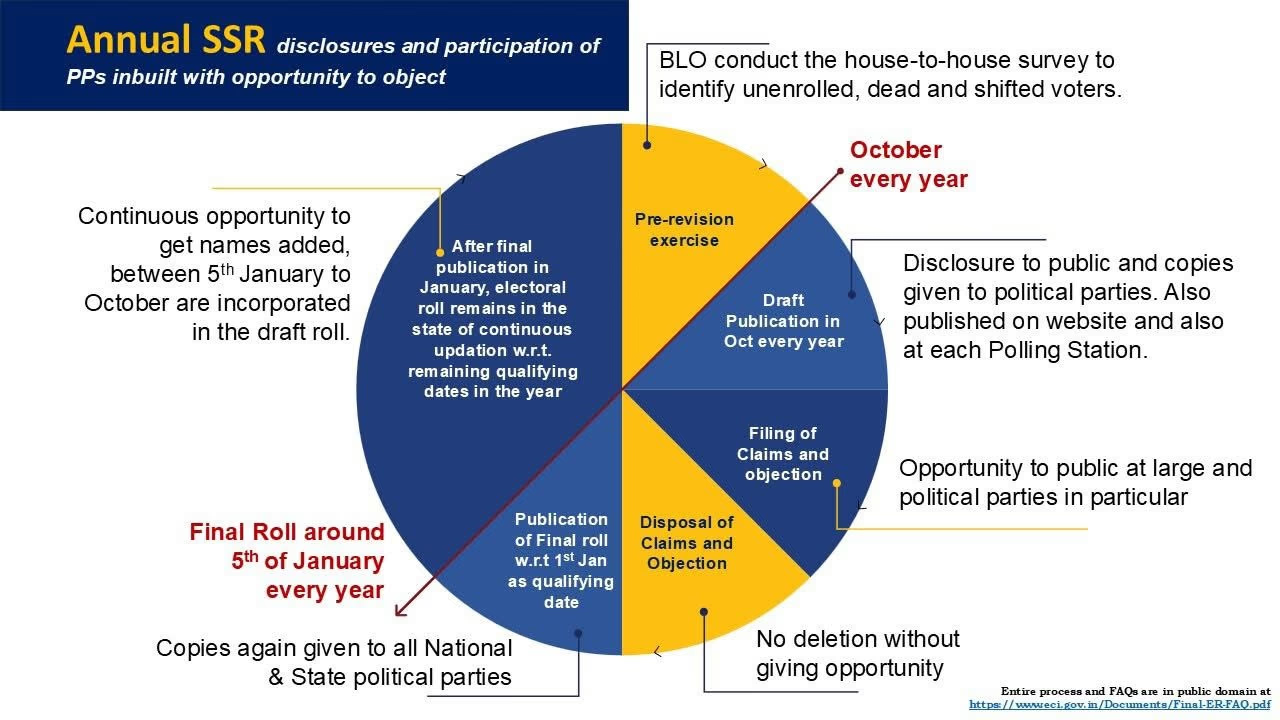
Source: aajtak
He stated that annual verification occurs in October, and political parties receive voter lists. New voter processes are communicated to parties, and draft copies are published at polling stations for complaint resolutions. No name can be removed without verification, and personal verification is conducted if more than 2% of names are removed at any polling station. Despite opportunities until October, these issues are raised only before elections.
EVMs: Pride of the Nation
Responding to questions about EVMs, Kumar explained that symbols are loaded 7-8 days before voting, with agents present, who can conduct mock polls. EVMs are sealed and stored in a strong room, then opened for mock polls on voting day. Form 17C is provided post-voting and matched before counting; counting doesn't proceed if disparities exist. VVPATs are randomly matched pre-counting.
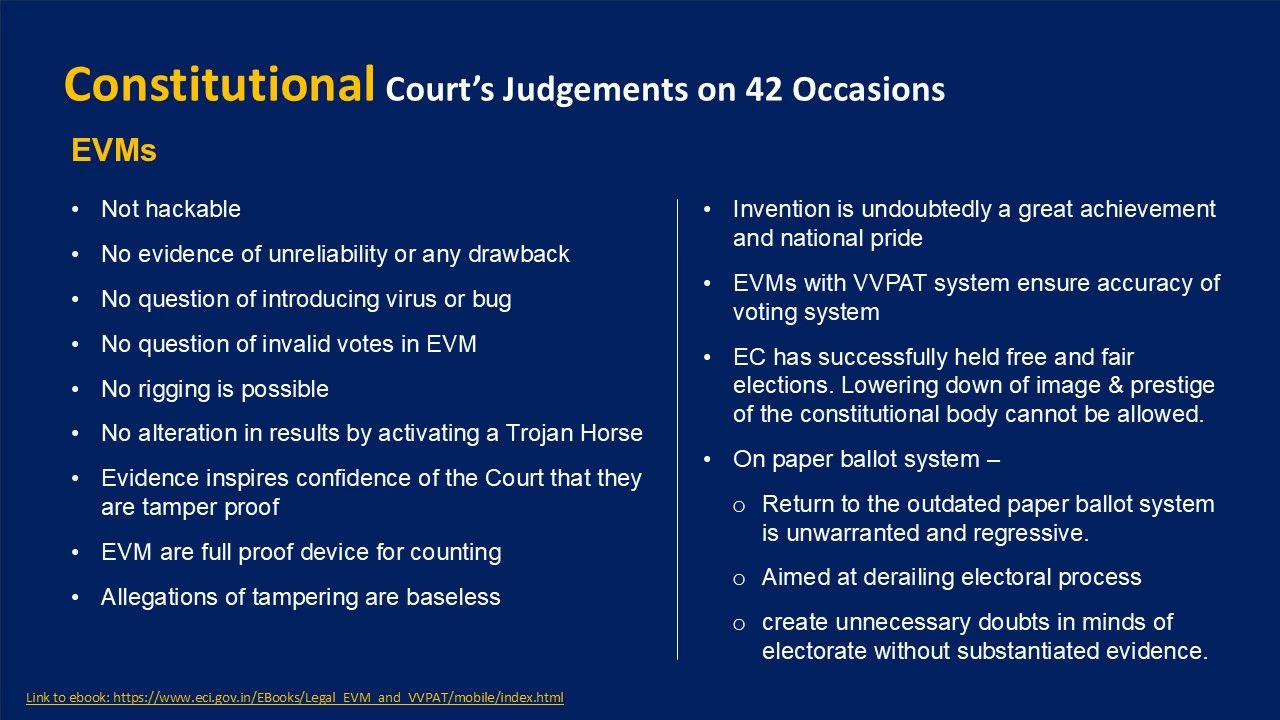
Source: aajtak
Addressing legal challenges, Kumar noted that both the Supreme Court and High Court have dispelled doubts about EVMs. Courts have asserted EVMs cannot be hacked, nor hold viruses or bugs, and reject any possibility of illegal votes. Claims of tampering have been dismissed.
Kumar asserted that EVMs are foolproof, with VVPAT enhancing transparency. He lauded the objectivity and transparency of elections conducted through EVMs, dismissing demands for paper ballots as needless and weakening electoral processes. Questions on electoral integrity without evidence are utterly wrong.
Why Voter Turnout Varies
Questions on turnout variance, specifically post-evening gaps, were raised. Kumar explained that post-voting tasks like polling station closure and EVM locking lead to 6 pm turnout not being final. Updates continue until 11 pm and into the next morning for delayed polling parties.
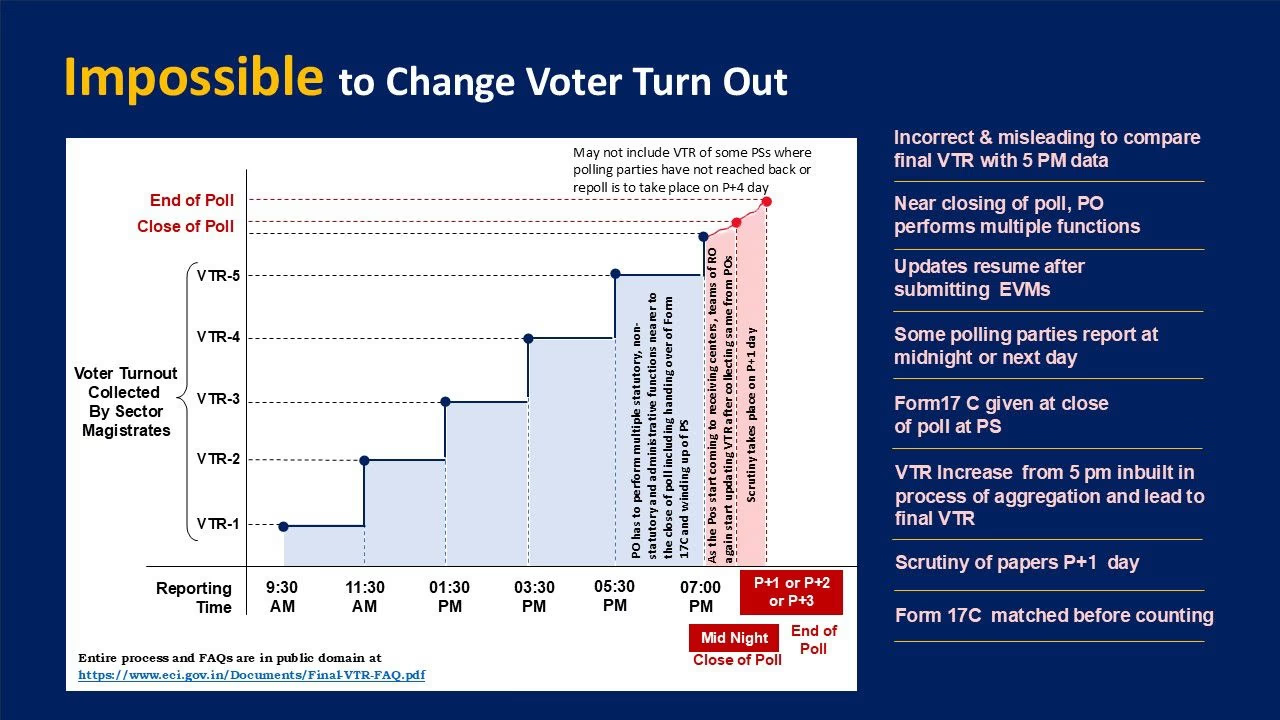
Source: aajtak
Kumar stated that demands for frequent VVPAT counts have resulted in counting 5 VVPAT slips from each assembly post-2019 court order. Over 67,000 VVPATs and 4.5 crore slips were counted without discrepancies. FAQs regarding these issues are available on the official website, providing public access to responses.
